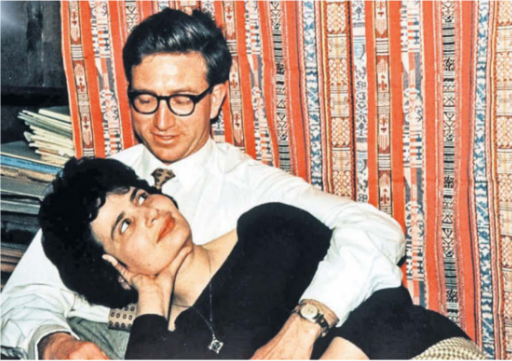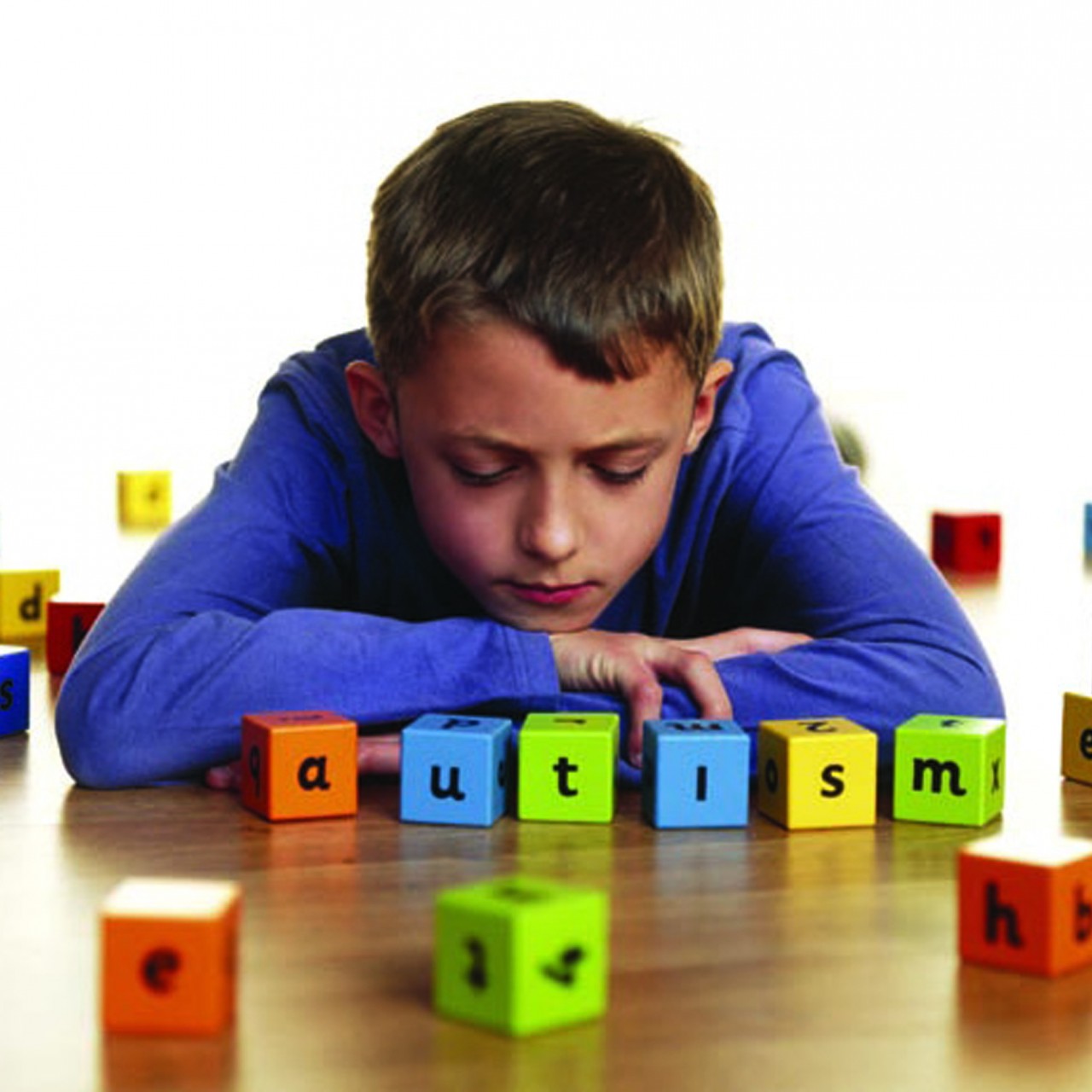
- Details
- ICNA
- News
- Hits: 1032
We are pleased to announce that the 59th Annual Meeting of the Japanese Society of Child Neurology will be held from June 15(Thu.) – 17(Sat.), 2017 at the Osaka International Convention Center (Grand Cube Osaka). I am greatly honored to be appointed President of this distinguished Meeting, and preparations are underway to ensure the fruitful Meeting will contribute to further advances in child neurology. The major programs of the plenary sessions will be “Talk on Down Syndrome -Support over a Life Time-” and “Current Status in Japanese Children with Learning Disorder”.
In the above plenary, “Talk on Down Syndrome –Support over a Life Time-“, there will be the following symposia: “Effort in Rehabilitation and Educational Fields for the Patients with Down Syndrome”, “Definitions and Clinical Feature of Acute Regression”, and “Treatment Strategies for Aging with Down Syndrome”. We welcome papers related to the above topics for either oral or poster presentations. Abstract Submission to the 59th Meeting will be available in this website from October 20, 2016 to December 6, 2016.
The Congress is calling for abstract submissions from foreign delegates (including foreign delegates currently in Japan) for the English session (oral/poster presentation). The registration fee for the first author will be waived on this occasion. Please read ‘call for abstract’ on our the 59 the Meeting homepage (http://www2.convention.co.jp/59jscn/english/callforabstract.html) carefully and submit your abstract at your soonest. As is widely known, Osaka boasts many places of interest and delicious food.
We hope you will enjoy the city during your visit. I and all of the members of the Meeting Steering Committee look forward to hosting you in Osaka on June 15(Thu.) to 17(Sat.), 2017.
Hiroshi Tamai, M.D., PhD
President
The 59th Annual Meeting of the Japanese Society of Child Neurology
Professor, Department of Pediatrics
Osaka Medical College 569-8686
2-7 Daigaku-machi Takatsuki
Osaka Japan
TEL 81-726-83-1221
FAX 81-726-84-5798
Read More

- Details
- ICNA
- News
- Hits: 925
A phrase was introduced to neonatal units in the 1970s, “Have you Dubowitzed the baby?”, which referred to a new, accurate technique for estimating the gestational age or period of time between conception and birth of a newborn child, pioneered by Lilly and Victor Dubowitz, a feisty Hungarian and her South African husband. Both were based in England. Their method was simple but groundbreaking: they tested a baby for a number of neurological signs that change as it matures. Until then, there was no clear-cut method for assessing whether a small baby was premature or undernourished.
The obstetrician Valerie Farr had already identified superficial or external signs of a baby’s maturation, including skin colour. The Dubowitz Score, as it became known was revolutionary in quantifying accurately the developmental phases of the newborn. It comprised oftwo charts.Each contained a set of signs identifying stages of superficial and neurological development in the baby, such as whether or not they could flex their arms and legs. They graded each developmental sign on a scale of 0 to 4 or 5.
No other paediatrician had defined the stages of maturation in newborns so clearly.Neither had they used a score to break down each phase. Lilly and Victor Dubowitz anticipated that neurological development signs would give a better estimate than the superficial. The reverse by a slight margin proved to be true. Lilly then had a brain-wave. She added together the total score for both groups of signs. The results correlated astonishingly closely to the true gestational age of the babies.
A meticulous clinician,she based her research on 400 babies observed in isolation. Subsequently, she interviewed theirmothers about theirmenstrual cycle prior to pregnancy and the date of their last period. This factor was key to estimating the gestational age of the baby. Of the 400, 167 gave data sufficiently accurate for further analysis. Dubowitz worked at the Jessop Hospital for Women in Sheffield where her husband was in charge of the paediatric ward. Always close, the couple were engaged within a fortnight of meeting in 1960. A friend of Victor’s had promised Lilly a picnic in Virginia Water. When his vintage car sprang aleak, he enlisted Victor as chauffeur.
Smitten, he married Lilly three months later at the West London Synagogue.“Those Hungarian salami sandwiches she brought to the picnic went straight through my stomach and into my heart,” he said. Their research partnership was strong: Victor, who is an expert in muscular dystrophy, drew the original stick- baby figures for the Dubowitz Score. Easy to use, this was laid out on note-pads, only requiring the clinician to circle in pen the stages of maturation applying most closely to the baby under observation.
Dubowitz was collating her data when the head of paediatrics at Cornell Medical School in New York, who had met the familyin America, came to stay. Fascinated, he pressed herto publish in an American paediatric journal. Printed in 1970, the score was a great success. Within a month, 200 reprints were ordered. It was later translated. By then, Lilly was 40 and accustomed to radical changes. Born in Budapest as Lilly Magdalene Suzanne Sebök, she was the daughter of Julius, a Jewish textile engineer who was sent to a labour camp by the Nazis. He died of a heart attack after his release. His wife and daughter hid in a safe house with false papers provided by the Swedish embassy.
At 16, Lilly emigrated to Australia. Although she spoke little English and suffered from dyslexia, she found work as a technician in a biochemistry laboratory. She then persuaded the University of Melbourne to allow her to work by day and study medicine by night. Graduating in 1956,she was posted to London two years later to train in endocrinology at Hammersmith hospital. According to her own words, she became a paediatrician “by accident”, after moving to Sheffield.
Awaiting the transfer of a medical research grant, she was offered a temporary post in paediatrics. She had worked briefly in the field in Melbourne and accepted the challenge readily. Yearning to conduct research, she organised her timetable so that she visited neonatal wards by night and was free by day to do the school runs for her four sons: David,who has become a radiologist; Michael, who is a cardiologist; Gerald, who is an anaesthetist; and Daniel, who is an architect.
Asked how she combined mothering four boisterous boys with intense clinical research, Dubowitz would reply, “They know who’s in charge”. In 1973 she was awarded a doctorate in medicine by Sheffield university. She loathed fuss. Her tests were always simple, such as using a red ball of wool to test infant eyesight, or a rattle to evaluate hearing. Warm and empathetic, she was concerned that her research was of practical use, especially in the third world.
She and her husband visited remote jungle areas of Papua New Guinea to assess newborn babies. Using the score, they could evaluate if a baby was underweight due to malnutrition or premature birth or possibly illness, such as malaria in the mother. In a refugee camp on the Thai border with Burma, Dubowitz trained an uneducated Karen woman as her assistant. On migrating to America, the woman was employed as a hospital cleaner. Hearing this, Dubowitz telephoned the hospital and said, “This woman is the co-author of one of my papers.” A job was duly found for her as an assessor of newborn babies.
Retirement in 1995 did not dampen Dubowitz’s dynamism. She embarked on a 20-year investigation into the life of her uncle, Stefan Sebök, an architect who vanished in Russia during the Second World War. Armed with a clutch of photographs and family anecdotes, she visited archives abroad and accessed KGB files. A woman who rarely accepted “no” as an answer, she discovered that Sebök had collaborated extensively with the Bauhaus architect Walter Gropius. “Lilly was always very inquiring and questioned everything,” her husband recalled. The result, The Forgotten Architect, was published in 2012.
Before her death from cancer, Dubowitz and her son Daniel put the story on to a website. For leisure,she restored Persian rugs and her husband is the owner of a fine green silk tie, made by Dubowitz, and patterned with stick-figure babies.
Lilly Dubowitz, paediatrician, was born on March 20, 1930. She died on March 14, 2016, aged 85
cover photo: Lilly with Victor Dubowitz in 1960.
This article was originally published in The Times June 14 2016
Read More

- Details
- Prof Haluk Topaloğlu
- News
- Hits: 3419
The founding father of Turkish Child Neurology, Professor Yavuz Renda (b.1932) has passed away on the 24th of July, 2015 after a long illness. His family roots aided Mustafa Kemal Atatürk in the construction of Modern Turkey in 1923.
Professor Renda established the backbones of our discipline in Turkey starting from early 1960s. This was parallel to the blossom of Child Neurology worldwide.
Yavuz Renda graduated from Ankara University Medical School in 1955. Between 1956 and 1960 he was trained as a Paediatric resident at St. Louis Children’s Hospital, Washington University in St. Louis. In 1960, he worked with Prof. Jean Holowitz at this institute, and this was his introduction to child neurology.
Professor Renda then moved to McGill University for a child neurology fellowship with Prof. Fred Andermann. He completed a MSc thesis on prematurity and spastic paraplegia in 1963. He then moved to the newly founded Hacettepe Children’s Hospital in Ankara, where he spent the rest of his academic career. He was one of the two Board Certified child neurologists in the country. The other one was Prof. Kalbiye Yalaz. Together, at the same unit they worked closely knit over the years. They have succeeded to develop a fully functioning department which naturally aided to grow and nourish other child neurology units countrywide.
He became a full professor in 1972. He was a visiting scientist studying epidemiology of epilepsy at the National Institutes of Health between 1980 and 1981. Starting from early 1980s Prof. Renda received recognition internationally.
He was one of the founders of the Mediterranean Society of Child Neurology (along with Shaul Harel and Yehuda Shapira). This Society was later on liaised with the European Paediatric Neurology Society (EPNS) and then to the Asian and Oceanian Society of Child Neurology Association (AOCNA). His membership to the ICNA was cardinal.
Prof. Renda continued to work as the chief of his unit until 1996 when he became the Dean of the Medical School at Hacettepe University. In between he had extra administrative duties such as Physician in Chief (1973-1977), Director, Institute of Child Development (1977-1980), and Institute of Neurology (1992-1995). He officially retired in 1999.
In 1999, he was awarded the Albert Schweitzer prize in medicine for his contribution to humanism by the Polish Medical Academy. Prof. Renda had memberships in various international organizations including the ICNA, the EPNS, and the AOCNA. He was the president of the AOCNA congress held in Istanbul in 1996. He was on the founding editorial board of the European Journal of Paediatric Neurology.
He had vast curiosity in various areas of Child Neurology, but mainly he did his research on epilepsy. Towards the end of his career he developed interest in epilepsy and genetics. And for that reason his last paper was on the description of a new disease with a form of spinal muscular atrophy and myoclonic epilepsy. This condition was identified as an allelic form of Farber disease (Zhou J, et al. Spinal muscular atrophy associated with progressive myoclonic epilepsy is caused by mutations in ASAH1. Am J Hum Genet 2012;91:5-14). He has 62 peer reviewed publications in the PubMed Professor Renda was a great teacher and a spirit to his pupils.
He had deep concerns for the benefit of his patients and their families. He was a considerate man to his colleagues and juniors. He listened to others’ views and gave credit while preserving his own insight. He had an eye to spot the talented. His looks were very impressive. When we were medical students in 1970s, I remember discussing in between us how Professor Renda looked like a loyal, honest and determined sheriff coming from the western movies.
His teaching sessions were very creative. When we were at grade three (in Turkey medical schools are for six years), there was one particular lecture on the white matter disorders of the brain, which he gave in the form of a two hour seminar with other faculty from biochemistry and neuropathology. That is still remembered.
Professor Renda is survived by his wife Prof. Günsel Renda, an art historian, two children and two grandchildren. His principles will be followed by generations.
Haluk Topaloglu
Department of Child Neurology
Hacettepe Children’s Hospital
06100 Ankara
Turkey
- Details
- ICNA
- News
- Hits: 994
ICNC2018 , ICNC2020 and new ICNA initiatives
Following a tremendously successful 14th ICNA Congress (ICNC2016) which was held in Amsterdam last week in cooperation with the Dutch Society of Pediatric Neurology and which offered a strong, clinically relevant and scientifically rigorous program and unique opportunity to network with > 1580 enthusiastic participants from around the world, I am writing on behalf of the ICNA Executive Board to provide you with certain key updates:
- I am very pleased to inform you that Dr. Jo Wilmshurst has been elected as the President-elect of ICNA (2016-2018) and will be assuming her role as President of ICNA in May 2018 at the ICNC2018 in Turkey. Please join me in congratulating Dr. Wilmshurst who has made seminal contributions to ICNA over many years.
- Please also remember to add our next ICNC2018 to your calendars. This 15th ICNA congress will now be taking place in India. The 2018 ICNA congress was originally scheduled to be held in Antalya, Turkey. Based on recent events in the region, the local organisers have made the very difficult, proactive and brave decision to withdraw from running the congress. This decision was not made easily and the Executive Board of the ICNA have great respect for our colleagues in Turkey. Their decision was based on the need to put the safety of members first. Further information about the specific dates and location in India for the 2018 ICNC will follow.
- For your longer term planning, the site for our ICNC2020 has also been chosen and will be taking place from October 19th to 23rd, 2020 in San Diego, CA, USA in cooperation with the Child Neurology Society.
- We further look forward to many new exciting initiatives for ICNA including:
- Formation of the Council of the Future Leaders of ICNA composed of senior neurology trainees and junior faculty
- Expansion of the Global Burden of Diseases Research Fellowship Seed Grants
- Development of Research Portals on ICNApedia to facilitate links between resource-rich and resource-poor regions to further international clinical and research collaborations which will be of mutual benefit to the children, their families, physicians and researchers in promoting understanding of the neurological diseases' pathophysiologies and for the development of novel targeted therapies for RCTs.
- Development of an online Textbook of Child Neurology on ICNApedia with annually updated chapters
- Launching of a distance Research mentorship program for neurology trainees and junior faculty
- Expansion of our research methodology symposia at all future ICNCs
- Continued recruitment of submissions to our Journal of ICNA (JICNA)
- Continued expansion of resources (online lectures, guidelines, clinical videos, neuroimages, journal watch, fellowship opportunities, WHO alerts, etc.) on our ICNApedia website http://icnapedia.org/
- Development of a medical/laboratory instrument transfer portal on ICNApedia.
We look forward to working with you and hope that you will join us in developing and contributing to our initiatives to promote excellence in clinical care, education and research in Child Neurology throughout the world though our current membership of > 2,000 members from all geographic regions.
- Please also help us spread the word about the important role that ICNA has to play in supporting the field of Child Neurology by passing our details to your colleagues and encouraging them to join us.
As you know ICNA Membership is FREE of charge. It is easy to join us. Applicants must submit an online ICNA Membership Application Form at http://icnapedia.formbin.com/forms/join. We look forward to working with you toward an exciting, progressive and enlightened future, through our international network of Child Neurology, to benefit and maximize the potential of children in all corners of the world,
With kindest regards,
 Ingrid Tein MD, President of ICNA
Ingrid Tein MD, President of ICNA
Read More

- Details
- ICNA
- News
- Hits: 3078
Researchers from Johns Hopkins Bloomberg School of Public Health have found that if a new mother has a very high level of folate right after giving birth – more than four times what is considered adequate – the risk that her child will develop an autism spectrum disorder doubles. Very high vitamin B12 levels in new moms are also potentially harmful, tripling the risk that her offspring will develop an autism spectrum disorder. If both levels are extremely high, the risk that a child develops the disorder increases 17.6 times. Folate, a B vitamin, is found naturally in fruits and vegetables, while the synthetic version, folic acid, is used to fortify cereals and breads in the United States and in vitamin supplements.
The preliminary findings will be presented May 13 at the 2016 International Meeting for Autism Research in Baltimore. While it was known that folate deficiency in pregnant mothers is detrimental to the child’s development. the current research suggests that excessive amounts may also cause harm.
Folate is essential in cell growth and promotes neurodevelopmental growth. Deficiencies early in pregnancy have been linked to birth defects and to an increased risk of developing an autism spectrum disorder. The Centers for Disease Control and Prevention says that one in four women of reproductive age in the U.S. have insufficient folate levels. Levels are not routinely monitored during pregnancy.
Autism spectrum disorder is a neurodevelopmental condition characterized by social impairment, abnormal communication and repetitive or unusual behavior.
For the study, researchers analyzed data from 1,391 mother-child pairs in the Boston Birth Cohort, a predominantly low-income minority population.
The mothers were recruited at the time of their child’s birth between 1998 and 2013 and followed for several years, with the mother’s blood folate levels checked once within the first one to three days of delivery. The researchers found that one in 10 of the women had what is considered an excess amount of folate (more than 59 nanomoles per liter) and six percent had an excess amount of vitamin B12 (more than 600 picomoles per liter).
The World Health Organization says that between 13.5 and 45.3 nanomoles per liter is an adequate amount of folate for a woman in her first trimester of pregnancy. Unlike with folate, there are not well-established thresholds for adequate vitamin B12 levels.
A large majority of the mothers in the study reported having taken multivitamins – which would include folic acid and vitamin B12 – throughout pregnancy. But the researchers say they don’t know exactly why some of the women had such high levels in their blood. It could be that they consumed too many folic acid-fortified foods or took too many supplements. Or, they say, it could be that some women are genetically predisposed to absorbing greater quantities of folate or metabolizing it slower, leading to the excess. Or it could be a combination of the two.
More research is needed in order to determine just how much folic acid a woman should consume during pregnancy to have the best chance that she will have optimal blood folate levels to ensure her offspring’s health. With many types of vitamin supplements, the conventional wisdom has been that too much is not harmful, that the body will flush out the excess. That may not be the case with folic acid and vitamin B12.
This study is part of an ongoing prospective birth cohort study on early life determinants of autism in the Boston Birth Cohort, co-led by Fallin and Wang, MD, MPH, ScD, Zanvyl Krieger Professor, Director, Center on the Early Life Origins of Disease at Bloomberg School, and is supported by the Maternal and Child Health Bureau (R40MC27443).
However it has to be stressed that the above study has not shown a causal link between taking folic acid and autism. The researchers took blood tests of close to 1,400 mothers between one to three days after they gave birth and found that about 10% of the mothers had very high levels of folate, beyond recommended amounts, and that these women were also more likely to have a baby that would later be diagnosed with autism spectrum disorder.
On May 10, the United States Preventative Services Task Force released a draft update to its existing recommendations on folic acid, and once again the group is advising all women who are planning or capable of getting pregnant take a daily supplement of 0.4 to 0.8 mg of folic acid.
It is also important to note that the above study is presented at a conference and have not been peer-reviewed or published in a journal.
Read More



